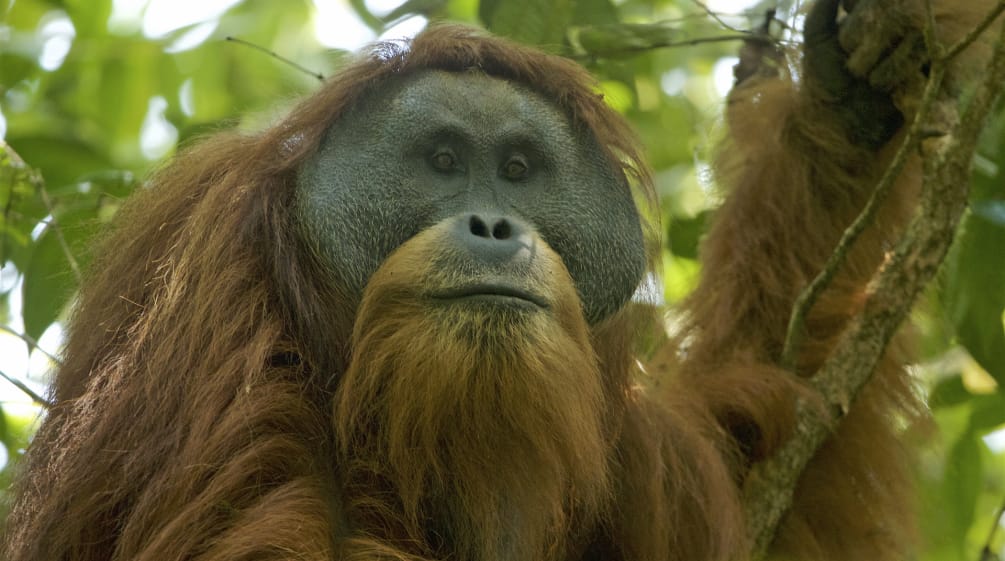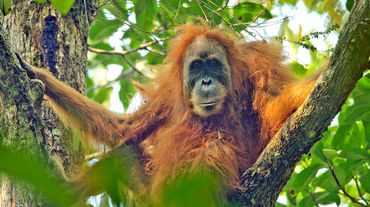ALERT urges Indonesian president: save the world's rarest ape
 © Tim Laman/CC BY 4.0
© Tim Laman/CC BY 4.0
Jul 11, 2018
In a letter hand-delivered on Monday, July 9th, 25 world-leading scientists from ALERT urged Indonesian President Joko Widodo to halt a hydropower project in northern Sumatra that would imperil the rarest great ape in the world.
The 25 scientists hail from the Pacific region, North and South America, Europe, and Asia, including Indonesia and China. Their letter can downloaded here (English version, Indonesian version) along with a press release (English version, Indonesian version).
Crisis time
“The Tapanuli orangutan was described by scientists only last year, and they were shocked to realize there were only 800 of the apes remaining alive,” said Dr Onrizal Onrizal, a forestry researcher with the University of Sumatera Utara in North Sumatra, the only Province in Indonesia where the ape still survives.
“The most urgent attribute of this species is, when roads appear, it disappears,” said ALERT director Bill Laurance, a professor at James Cook University in Australia.
Laurance and his team recently published a major study of the ape's conservation status and threats. “It’s tiny habitat is being whittled away by illegal forest clearing, logging, and poaching, and all those things cluster around roads.”
“Indonesia has an international responsibility to protect this unique ape,” said Professor Jatna Supriatna, a primate specialist at the University of Indonesia in Jakarta. “And saving its habitat would help protect many other rare species as well, such as the endangered Sumatran tiger.”
Hydro-project peril
“The biggest threat to the ape is a $1.6 billion hydropower project," said Laurance.
"It is supported by the Bank of China and Sinohydro, China’s hydropower authority — and would be smack in the middle of the ape’s tiny habitat, slicing it in half with new roads, powerlines, and pipelines, and flooding critical habitat too."
The scientists say the dam project, know as Batang Toru, was refused support by other major funders such as Asian Development Bank and the World Bank’s International Finance Corporation, which judged the ape’s habitat far too sensitive environmentally to sustain further development.
“In that context, it’s shocking that the Bank of China, Sinohydro, and their Indonesian partners are pushing so hard for this project,” said Laurance. “And they are using blatant misinformation to advance their case.”
“The power generated by the hydropower project would be very modest,” said Onrizal. “And the Tapanuli orangutan is Critically Endangered, the most dire of all imperiled species.
“This is one of our closest living relatives — how could we risk sacrificing it for such a small benefit?” said Onrizal.
Bigger picture
The ongoing battle over the Tapanuli Orangutan is shaping up as having even greater significance than saving the world's rarest great ape.
It is also becoming an acid test for China's $8 trillion Belt & Road Initiative — some 7,000 planned infrastructure and extractive-industry projects that would stretch across half the planet, linking some 70 nations to China via road, rail, and port projects.
China has claimed that the Belt & Road would be environmentally sustainable, but leading scientists — including ALERT researchers — have largely dismissed this assertion as being exceedingly unlikely.
If China is so driven to push its agenda that it would gravely imperil the world's rarest species of great ape, then how can we believe any of its other assertions about 'green' development?












